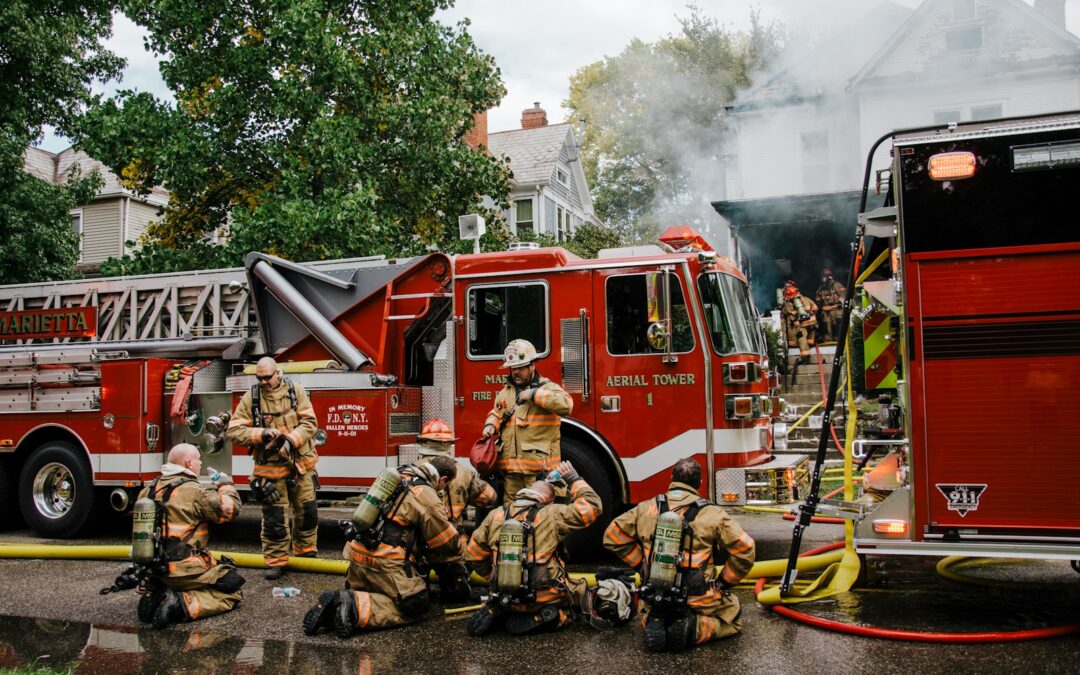Revolutionizing Emergency Response with IoT Technology
Improving Response Times and Coordination
The Internet of Things (IoT) is dramatically enhancing the resilience and responsiveness of emergency services in smart cities. By leveraging IoT technology, cities like Dubai and Riyadh are transforming their emergency response systems to become more agile and effective. IoT devices, such as smart sensors and connected communication tools, provide real-time data that enables emergency services to respond more swiftly and coordinate better during crises.
In a smart city framework, IoT systems can monitor a variety of parameters, including traffic conditions, weather, and infrastructure health. This real-time information is crucial for emergency responders as it allows them to assess situations accurately and deploy resources efficiently. For example, traffic sensors can help direct emergency vehicles through the fastest routes, minimizing delays and ensuring timely intervention. This technological integration ensures that cities are not only more prepared for emergencies but also capable of managing them with a higher degree of precision and effectiveness.
Enhancing Resilience Through Predictive Analytics
Predictive analytics powered by IoT is another key aspect in enhancing the resilience of smart city emergency services. By analyzing data collected from various IoT devices, cities can anticipate potential emergencies and take preemptive actions to mitigate risks. For instance, IoT-enabled environmental sensors can detect early signs of natural disasters such as floods or wildfires, allowing authorities to issue warnings and implement evacuation plans before the situation escalates.
In Saudi Arabia, where extreme weather conditions can pose significant challenges, predictive analytics offers a proactive approach to disaster management. By utilizing historical data and real-time inputs, smart city systems can forecast emergencies and prepare responses in advance. This forward-thinking approach not only enhances the resilience of emergency services but also helps in safeguarding lives and minimizing damage.
Facilitating Real-Time Communication and Coordination
Effective communication is crucial for the success of emergency services in smart cities, and IoT significantly enhances this aspect by facilitating real-time communication and coordination. IoT systems enable seamless information sharing among various emergency response units, including police, fire services, and medical teams. This interconnectedness ensures that all relevant parties are informed and can act collaboratively during emergencies.
In cities like Dubai and Riyadh, IoT-based communication platforms allow emergency services to track the status of ongoing incidents, manage resources, and coordinate efforts more effectively. For example, a smart city’s command center can use IoT data to monitor emergency calls, dispatch units, and update response strategies based on the latest information. This level of coordination is essential for managing complex emergency situations and ensures a cohesive and efficient response to crises.
Driving Innovation and Future-Proofing Emergency Services
Leveraging AI and Machine Learning for Enhanced Decision-Making
The integration of Artificial Intelligence (AI) and machine learning with IoT technology is driving innovation in emergency services within smart cities. By harnessing these advanced technologies, cities can enhance their decision-making processes and improve the overall efficiency of emergency responses. AI algorithms can analyze vast amounts of data from IoT devices to provide actionable insights and support decision-making during critical situations.
For instance, AI can help in optimizing resource allocation by predicting where emergencies are most likely to occur and suggesting the best response strategies. In Saudi Arabia and the UAE, where rapid urbanization and technological advancements are prevalent, integrating AI with IoT systems can significantly enhance the capabilities of emergency services. This innovative approach ensures that emergency response systems are not only reactive but also proactive and adaptive to evolving challenges.
Ensuring Scalability and Adaptability of Emergency Systems
As smart cities continue to grow and evolve, ensuring that emergency services systems are scalable and adaptable is crucial for long-term success. IoT technology provides a scalable framework for emergency services, allowing cities to expand and enhance their systems as needed. This scalability ensures that emergency services can keep pace with urban development and technological advancements.
In Dubai and Riyadh, where smart city initiatives are rapidly advancing, scalability is a key consideration in the deployment of IoT solutions for emergency services. By designing systems that can adapt to new technologies and increasing demands, cities can ensure that their emergency services remain effective and resilient. This focus on adaptability not only supports current needs but also prepares cities for future challenges, ensuring sustained success in emergency management.
Empowering Leadership and Project Management for Smart Cities
Effective leadership and project management are essential for the successful implementation of IoT technology in smart city emergency services. Leaders must navigate the complexities of integrating new technologies, managing projects, and ensuring that systems meet the needs of dynamic urban environments. In cities like Dubai and Riyadh, where innovation and growth are central, strong leadership is crucial for driving successful IoT initiatives.
Executive coaching services play a vital role in supporting leaders in smart cities by providing guidance on strategic planning, project management, and change management. These services help leaders develop the skills needed to oversee IoT projects and ensure that emergency services systems are implemented effectively. By focusing on leadership development, cities can enhance their ability to manage smart city projects and achieve their goals in emergency response and management.
Conclusion
The integration of IoT technology is revolutionizing emergency services in smart cities, enhancing resilience and responsiveness through improved communication, predictive analytics, and real-time coordination. Cities like Dubai and Riyadh are leading the way in utilizing IoT to transform emergency management and ensure effective responses to crises. By embracing innovative technologies, focusing on scalability, and empowering leadership, smart cities can continue to advance their emergency services and achieve greater success in safeguarding their communities.
—
#IoTInSmartCities #EmergencyServicesTech #SmartCityInnovation #IoTImpact #ModernTechnology #AIInEmergencyServices #LeadershipInSmartCities #ProjectManagementInSmartCities #GenerativeAI #SmartCityResilience













